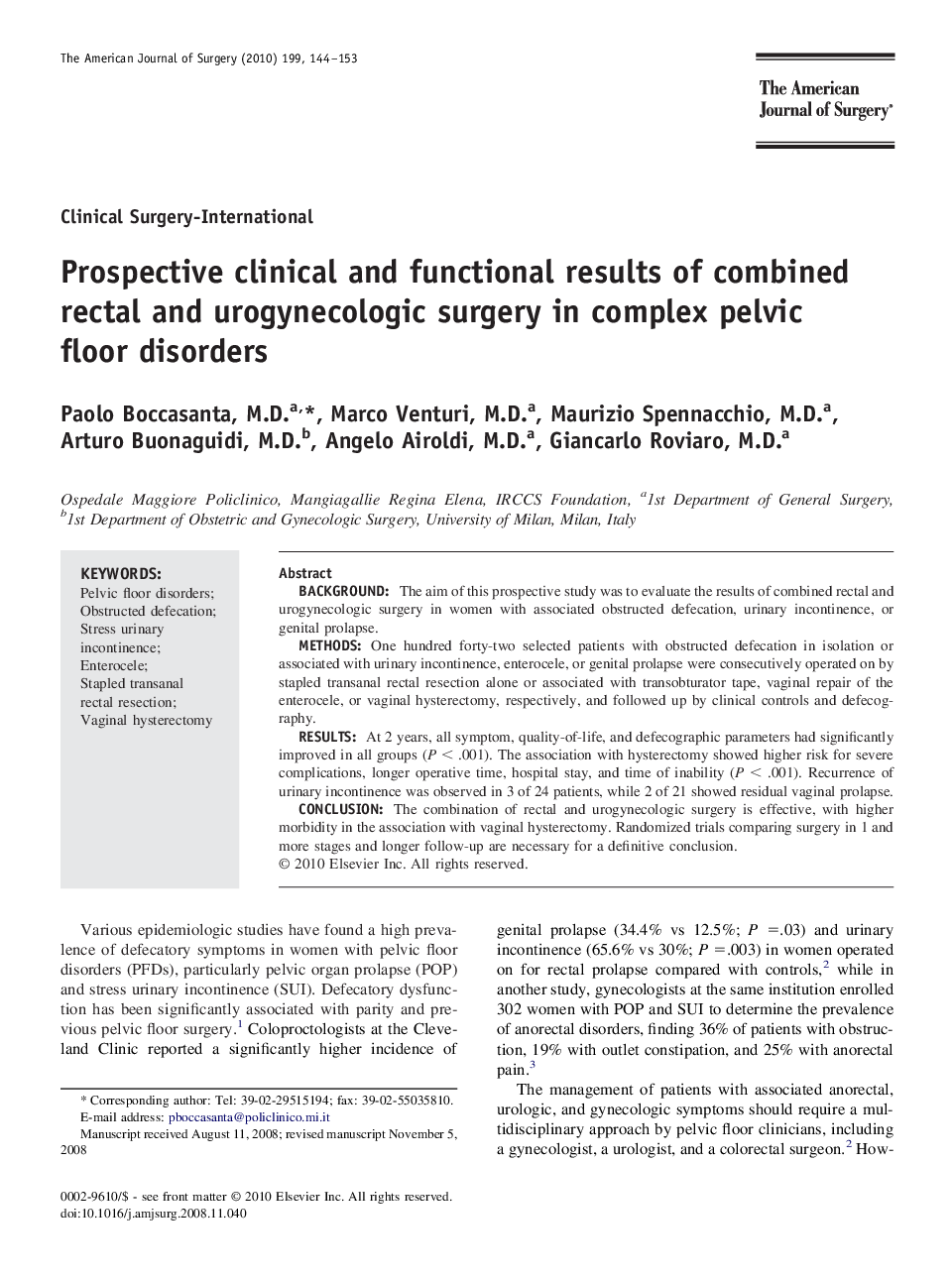| Article ID | Journal | Published Year | Pages | File Type |
|---|---|---|---|---|
| 4280668 | The American Journal of Surgery | 2010 | 10 Pages |
BackgroundThe aim of this prospective study was to evaluate the results of combined rectal and urogynecologic surgery in women with associated obstructed defecation, urinary incontinence, or genital prolapse.MethodsOne hundred forty-two selected patients with obstructed defecation in isolation or associated with urinary incontinence, enterocele, or genital prolapse were consecutively operated on by stapled transanal rectal resection alone or associated with transobturator tape, vaginal repair of the enterocele, or vaginal hysterectomy, respectively, and followed up by clinical controls and defecography.ResultsAt 2 years, all symptom, quality-of-life, and defecographic parameters had significantly improved in all groups (P < .001). The association with hysterectomy showed higher risk for severe complications, longer operative time, hospital stay, and time of inability (P < .001). Recurrence of urinary incontinence was observed in 3 of 24 patients, while 2 of 21 showed residual vaginal prolapse.ConclusionThe combination of rectal and urogynecologic surgery is effective, with higher morbidity in the association with vaginal hysterectomy. Randomized trials comparing surgery in 1 and more stages and longer follow-up are necessary for a definitive conclusion.
